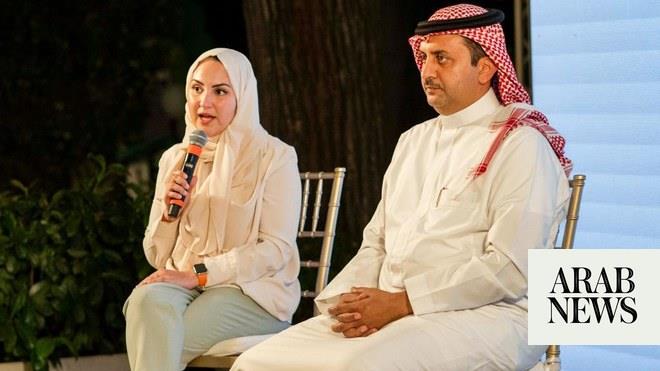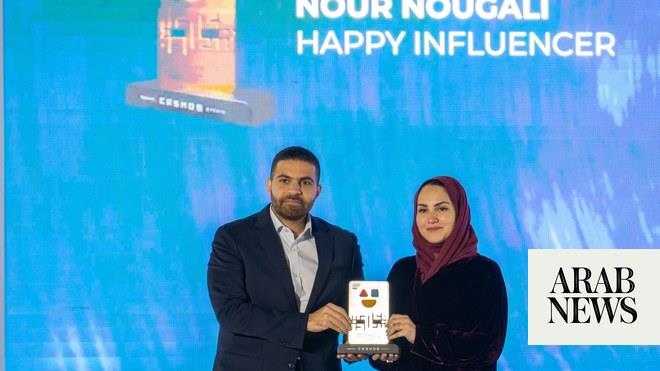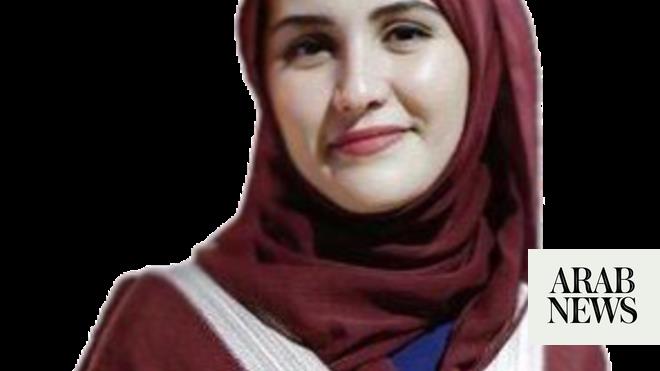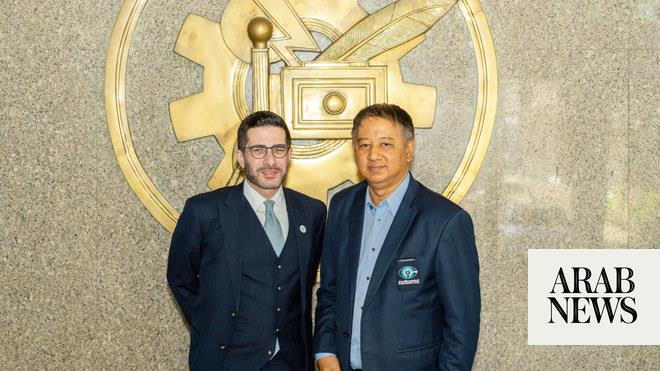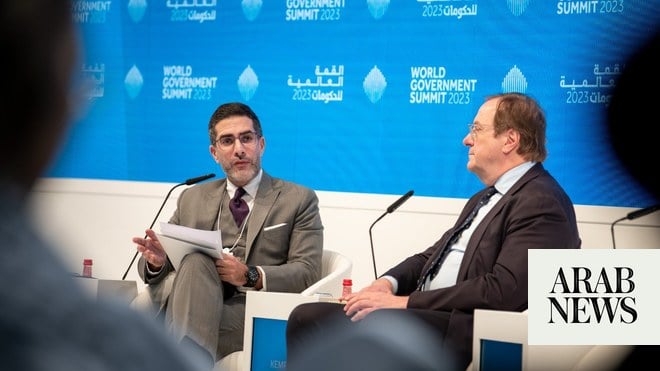
RIYADH: A panel discussing issues related to geopolitics and economics was on Monday moderated by the editor-in-chief of Arab News, Faisal J. Abbas, at the World Government Summit.
The segments were designed to discuss the importance of decision making, global investment, and food security toward achieving a stabilized, prosperous world.
The first session, titled Geopolitical Waves Shaping our Economy, had Frederick Kempe, president and chief executive officer of the Atlantic Council, as a keynote speaker.
As an American who viewed world history in periods, he said: “There were failures and successes after each world war.”
He pointed out that the world had reached “an inflection point in history” where leaders had an opportunity to make positive decisions on policies that would have “an outsized influence that can have generational outcomes.”
Chairman of construction firm Walbridge and former US ambassador to the UAE, John Rakolta Jr., and dean of Said Business School at the University of Oxford, Prof. Soumitra Dutta, jointly led a discussion on investment capitals and the need for global cooperation.
During the session — titled How Can Governments Build a Future-fit Economy — Rakolta said governments could learn from privately owned businesses.
“The private sector has the ability to identify a problem and look at ways to solve it. We measure risks, we are not afraid to make mistakes, as our biggest failures become our biggest lessons,” he added.
Dutta said: “The world is divided between the haves and the have-nots and the gap between the two is large. You need good governance and institutions to attract good investment.
“We have to work together; we have to continue making connections to each other. It is important to understand we do not become great separately but by coming together.”
The final session, held under the title Enhancing a Global Economy for a Growing Population, was hosted by Michala Marcussen, group chief economist of Societe Generale, and David Rosenberg, co-founder and CEO of AeroFarms.
American indoor agricultural company AeroFarms plans to expand into Saudi Arabia this year in partnership with the Kingdom’s Public Investment Fund.
Rosenberg said: “We need to embrace the technologies of robotics, animation, and computing powers.”
He highlighted how shortages of food and water supplies, brought about by climate, war, and natural disasters, could be resolved with the use of technology.
On global cooperation, Marcussen said: “We have witnessed a decline in recent years on global cooperation and working across borders to work together but it is the best solution for positive outcomes.
“It is not only the right technology that we need but the correct behaviors put forth by governments,” she added.




